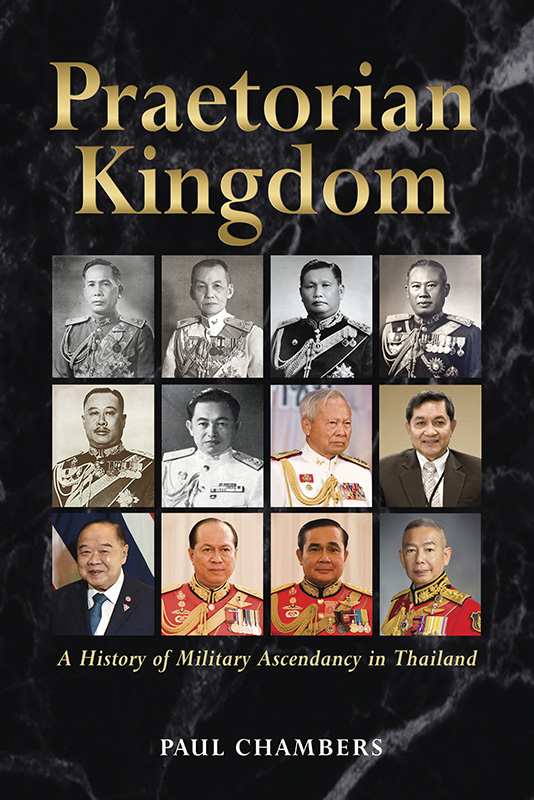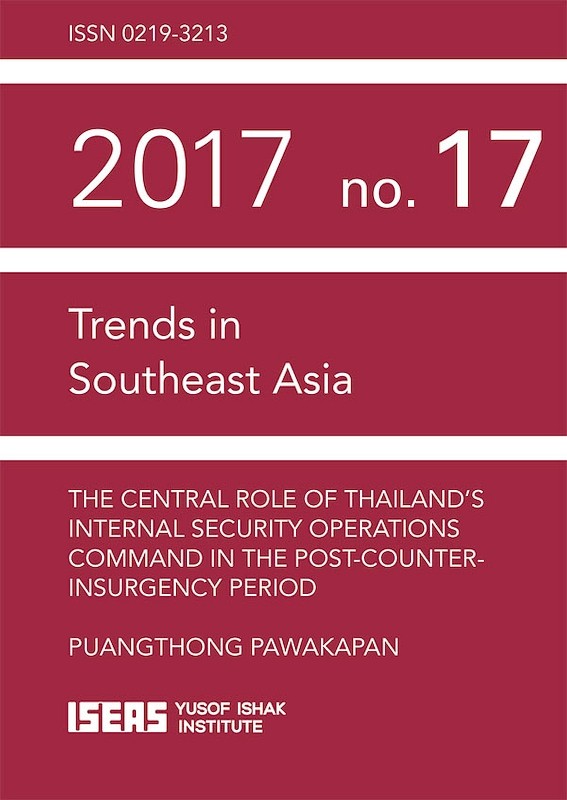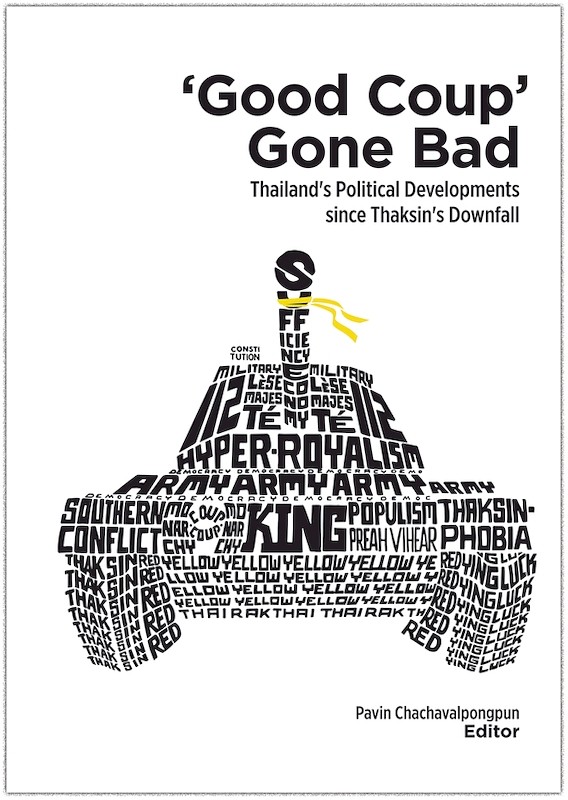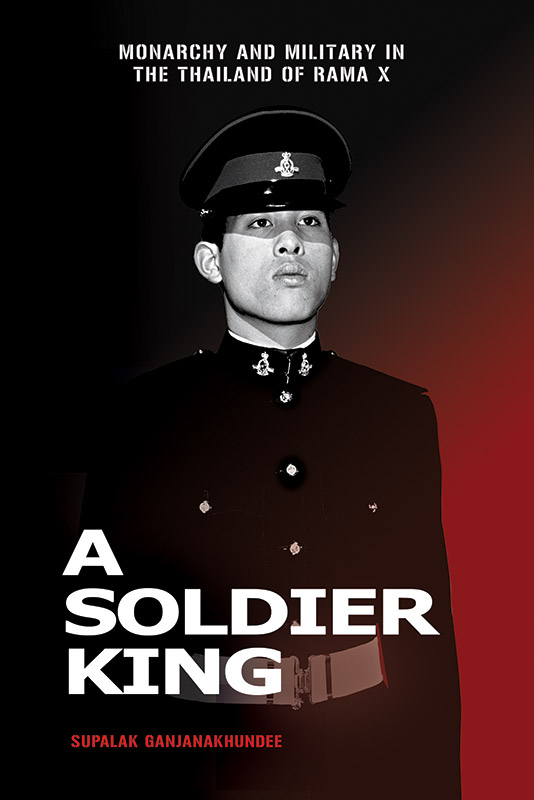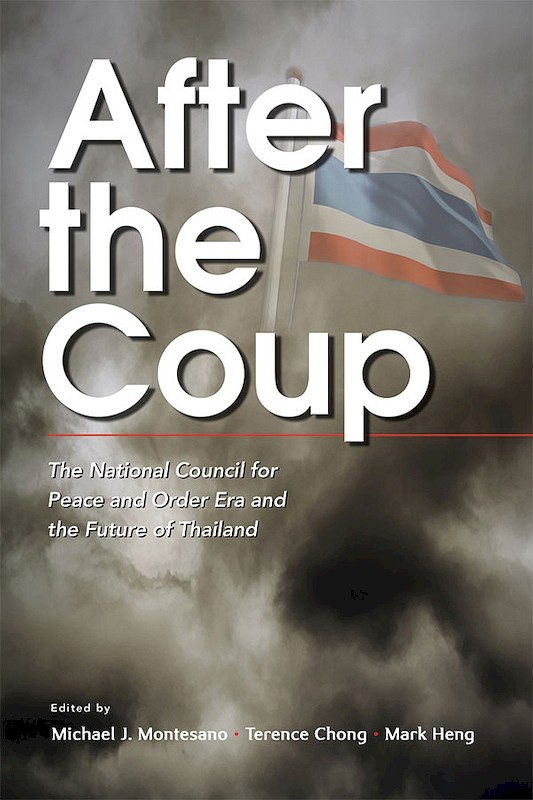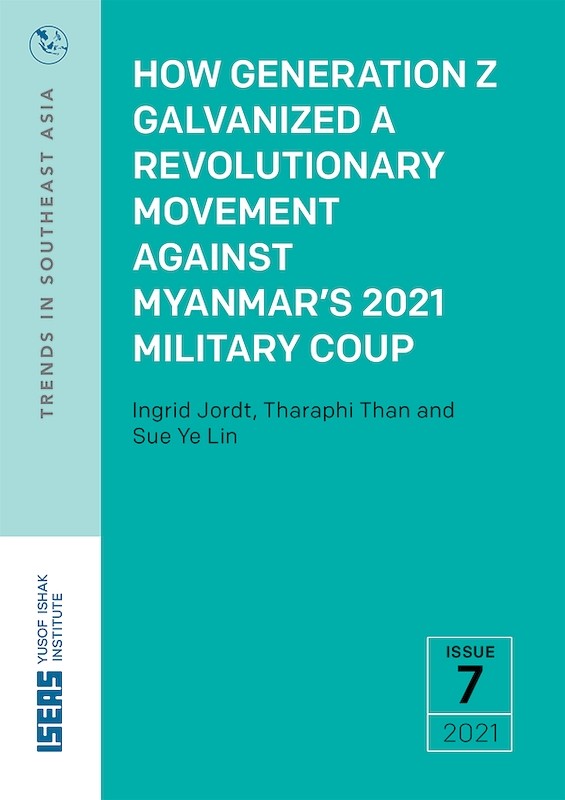Infiltrating Society: The Thai Military’s Internal Security Affairs
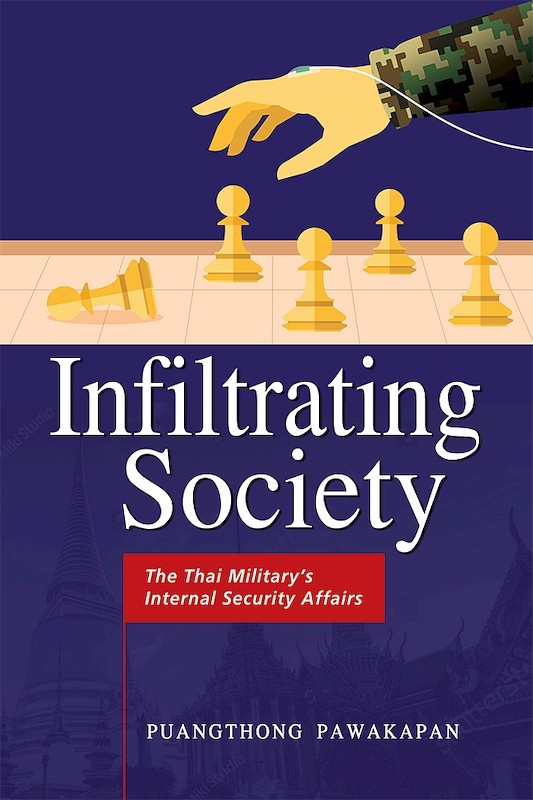
Puangthong Pawakapan, author
Date of publication:
2021
Publisher:
ISEAS – Yusof Ishak Institute
Number of pages:
182
Code:
BM596
Soft Cover
ISBN: 9789814881715
Reviews
"The importance and contribution that Puangthong Pawakapan’s Infiltrating Society makes to Thai studies should be understood in this context. Infiltrating Society’s revelation of the deep permeation of the military in civil society in the cities and rural areas completes the puzzle, something that many scholars in Thai studies have long awaited."
Pasit Wongngamdee, https://www.newmandala.org/book-review/infiltrating-society-the-thai-militarys-internal-security-affairs/
"In Infiltrating Society: The Thai Military's Internal Security Affairs, Puangthong Pawakapan argues that the Thai military has used infiltration tactics to indoctrinate Thai civilians to adopt military ideologies and secure its preferred political order.
Puangthong starts by discussing the main function of the Thai military. She argues that ever since the Thai military was modernised by King Rama V, the military has had little experience fighting inter-state wars but much experience in suppressing its own citizens. Historically, the military has used armed suppression to quell civilian resistance, whether millenarian rebels during the reign of King Rama V, Musllims in the deep south or the Communist Party of Thailand during the Cold War.
There are a number of works studying individual mass organisations, which are a part of the military's infiltrations (e.g. Bowie 1997, Hyun 2014 and 2017, Ball, 2004, Ball and Mathieson 2007). But while these works are very insightful, they require a broader work to link their contributions together and offer a holistic view of how the infiltrations affect Thai politics. Infiltrating Society is that missing work. The book illustrates how deeply the military has infiltrated civilian society and the impacts on Thailand's civil-military relations."
Marwaan Macan-Markar, https://asia.nikkei.com/Life-Arts/Arts/Book-review-Thai-Myanmar-militaries-bounded-by-politics-power-profit
"Puangthong Pawakapan, a political scientist at Chulalongkorn University in Bangkok, argues in her book that coups are not the only yardstick of military dominance. She documents in Infiltrating Society: The Thai Military's Internal Security Affairs how the military has often engaged in thought and behaviour control programs through its Internal Security Operations Command, a Cold War relic.
The strength of the book's argument lies not only in making this link but also locating it as an extension from the past when the enemy was not democracy but communism. It is instructive in helping to understand the Thai military mindset, since the generals used strategies that combined coercion and sociopolitical measures to defeat the Communist Party of Thailand in the early 1980s after viewing the two-decade-long insurgency in the rural heartlands as the country's gravest security threat."
"It has long been axiomatic that Thailand's military has largely run the country between desultory bouts of democracy since 1932, when the first coup ended the reign of King Prajadhipok, writing the finish to nearly 800 years of absolute monarchy under the Siamese kings. But that conjures an image of the generals marching in periodically to run affairs until they withdraw to the barracks. That is a simplistic view of a country where the military for decades have provided the very endoskeleton on which government is overlaid, year in, year out, no matter what kind of government is in power.
As Puangthong Pawakapan points out in this book, whether or not Thailand is under military rule, the bureaucracy of internal security is always present on a routine basis.
Puangthong is a gutsy associate professor at Chulalongkorn University who in this slim volume has set out to detail just exactly how deeply the military is embedded in Thai society and government. As she says in her preface, she lived as a child near Bangkok's Ratchadamnoen Avenue, the center stage then and now for many of the significant events in modern Thai politics. Even before the generals would announce another of their 22 coups - 13 of them succssful - she knew they were coming because the phones would go dead and the area would be swarm with military trucks."
Andrew J. Nathan, Foreign Affairs Pg. 210, May/June 2022
"It takes not just skill but also courage for a Thailand-based scholar to explain so clearly how the military has penetrated society in an effort to foster support for its conservative, royalist policies."
Kevin Hewison, Journal of Contemporary Asia, https://www.tandfonline.com/doi/full/10.1080/00472336.2022.2037264, 17 March 2022
"The book revives critical scholarship of the military and should be of interest to anyone who wants to know more about the military's political dominance. Hopefully, the book encourages other scholars to further probe the organisations and ideology of the military's mission and its conservative twinning with the monarchy."
About the publication
"Thai politics is driven by actors and actions of paradox such as anti-election movements for accountability or independent, partisan organizations. This lucidly written book uncovers the 'military-led civil affairs' that earn the armed forces the omnipotent role in Thai society. It enriches our understanding of the Thai military in both empirical and theoretical ways. Empirically, the book illuminates how the soldiers have been intensively involved in supposedly civic activities ranging from forest land management to poverty reduction. Such long-lasting and extensive involvement means the military could mobilize the organized mass of over 500,000 strong when necessary. Theoretically, readers will learn how an ideological discourse ('threats to national security') has been continuously redefined to serve the military’s evolving political and rent-seeking missions from the Cold War era to the twenty-first century. It also traces the persistence and mutation of this highly adaptable organization, the one that knows when to roar and when to camouflage. Still waters run deep; Thai military operations run deeper and wider."
Veerayooth Kanchoochat, Associate Professor of Political Economy, National Graduate Institute for Policy Studies (GRIPS), Tokyo
“A truly monumental work about Thailand’s military from the 1960s until today, this solid study focuses upon the armed forces’ internal security role across Thai society, how the military has succeeded in legitimizing itself and boosting its power as a counterinsurgency force, guardian of monarchy and engine of development. The book also valuably looks at the military’s establishment of mass organizations beginning during the Cold War and mobilization of royalists since 2006. The book thus illustrates how the military has been able to enhance and sustain its overwhelming influence and is thus a valuable study for anyone wanting to understand key power-brokers in Thailand.”
Dr Paul Chambers, Center of ASEAN Community Studies, Naresuan University, Thailand
Contents
-
Infiltrating Society: The Thai Military’s Internal Security Affairs
[Whole Publication, ISBN: 9789814881722], by Puangthong Pawakapan, author -
Preliminary pages with Foreword by Michael J. Montesano
-
1. Introduction
-
2. Rationale, Legitimacy, and Development
-
3. The Making of the Development Military
-
4. Establishing State-Dominated Mass Organization
-
5. Remobilization of the Royalist Mass Since 2006
-
6. Conclusion
-
Bibliography
-
Index
-
About the Author

